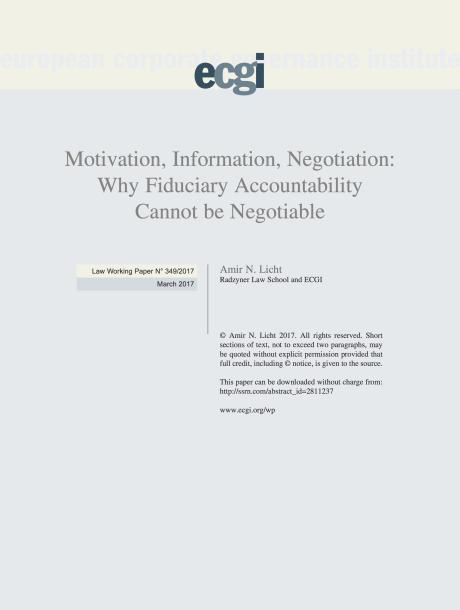
Motivation, Information, Negotiation: Why Fiduciary Accountability Cannot Be Negotiable
Abstract
In the debate over contractual freedom or enabling-versus-mandatory rules in fiduciary law, those who do not adhere to an unbridled contractatian approach tend to justify fiduciary law’s strict posture by appealing to transaction cost reasoning. In this view, fiduciary law more efficiently sets rules that the parties would adopt or, also efficiently, sets penalty default rules that they would not adopt. Drawing on new institutional economics and information economics, this paper advances another theory on the appropriate scope of contractibility with regard to fiduciary loyalty. The present account highlights information asymmetries that are more tenacious than those stemming from information production costs - to wit, asymmetries due to unobservable and unverifiable information. These asymmetries provide a compelling justification for a strict, full-disclosure-based accountability regime. A similar analysis vindicates a rather similar legal policy in traditional insurance law, in which insurance relations are based on utmost good faith and impose a duty of full disclosure on the insured.





